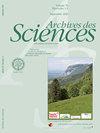Administrative and Legal Regulation of Humanitarian Aid Under Martial Law
Q3 Multidisciplinary
引用次数: 0
Abstract
Since 2014, humanitarian aid has been one of the factors that has helped to ensure the livelihoods of the civilian population in eastern Ukraine (Donetsk and Luhansk oblasts). However, since the end of February 2022, humanitarian aid has become an important element of support for the population of Ukraine, as many citizens have found themselves in an extremely vulnerable economic, social and psychological situation under martial law. Since the beginning of the full-scale invasion of Ukraine by the Russian Federation, the problem of providing humanitarian aid, charitable donations and free assistance to military personnel and civilians, primarily internally displaced persons, has become urgent. Both Ukrainians and the international community, volunteers, NGOs and charitable foundations have united to help Ukraine. Responding to the challenges, the state began to rapidly restructure and diversify the existing system of providing humanitarian aid, charitable donations and free assistance to ensure that they are promptly delivered to those in need. The public became more active and joined forces in providing assistance to both internally displaced persons and military units, which led to the creation of a significant number of charitable organizations and intensified volunteerism. At the same time, cases of criminal offenses in the use of humanitarian aid and charitable donations, including fraud, misuse of aid, embezzlement, etc. have become more frequent.戒严令下人道主义援助的行政和法律监管
自 2014 年以来,人道主义援助一直是帮助确保乌克兰东部(顿涅茨克州和卢甘斯克州)平民生计的因素之一。然而,自 2022 年 2 月底以来,人道主义援助已成为支持乌克兰民众的重要因素,因为许多公民发现自己在戒严状态下处于极其脆弱的经济、社会和心理状况。自俄罗斯联邦开始全面入侵乌克兰以来,向军事人员和平民(主要是境内流离失所者)提供人道主义援助、慈善捐款和无偿援助的问题变得十分紧迫。乌克兰人和国际社会、志愿者、非政府组织和慈善基金会联合起来帮助乌克兰。为了应对这些挑战,国家开始迅速调整现有的人道主义援助、慈善捐款和无偿援助系统,并使之多样化,以确保将这些物资及时送到需要的人手中。公众变得更加积极,并联合起来向境内流离失所者和军事单位提供援助,这导致了大量慈善组织的成立和志愿服务的加强。与此同时,使用人道主义援助和慈善捐款的刑事犯罪案件,包括欺诈、滥用援助、贪污等,也变得更加频繁。
本文章由计算机程序翻译,如有差异,请以英文原文为准。
求助全文
约1分钟内获得全文
求助全文
来源期刊

Archives Des Sciences
综合性期刊-综合性期刊
CiteScore
1.10
自引率
0.00%
发文量
0
审稿时长
1 months
期刊介绍:
Archives des Sciences est un journal scientifique multidisciplinaire et international. Les articles sont soumis à un comité
de lecture.
 求助内容:
求助内容: 应助结果提醒方式:
应助结果提醒方式:


